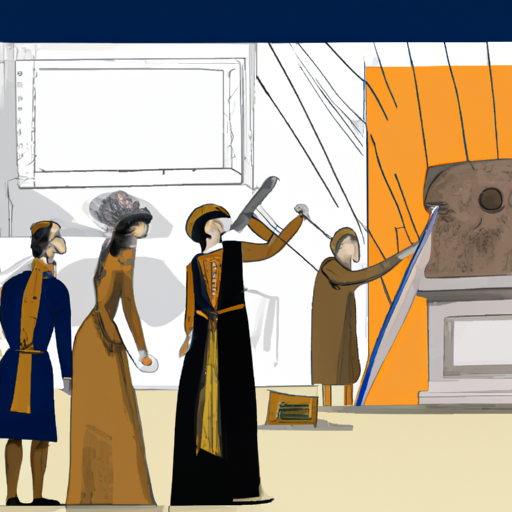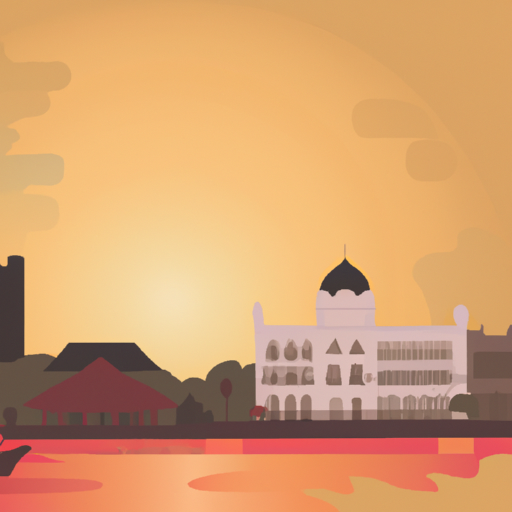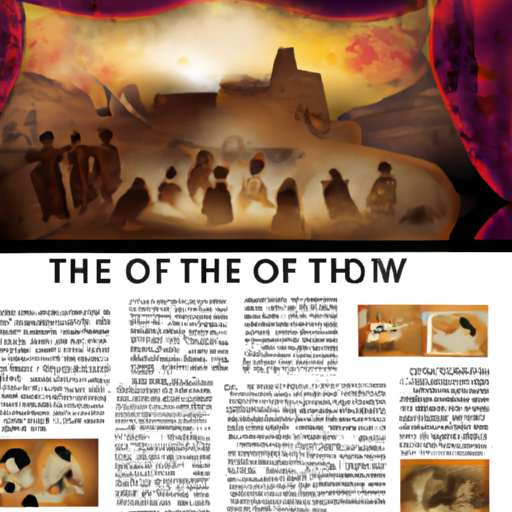The History of the Strongest Rulers in History
Stories of might and grandeur, tales of those who held sway over vast realms, have been passed down through the ages. But which one stands as the most powerful? Who among them was able to command the greatest degree of authority? Such questions are often asked but rarely answered, leaving us to ponder and wonder about the true extent of their power.
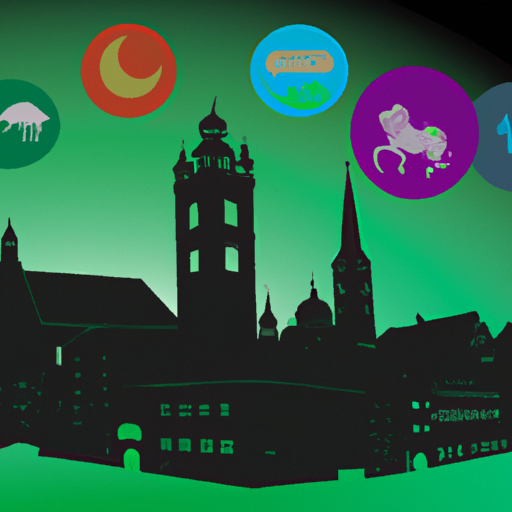
Throughout the ages, many rulers have held sway over expansive realms. From ancient empires such as the Roman and Byzantine Empires to more modern powers like the British Empire and United States, each has claimed dominion over vast lands and people. But who among them was truly the most powerful? Who had the greatest degree of authority? To answer this question, we must look back at the history of each ruler and examine their accomplishments.
The Roman Empire is often cited as one of the most powerful civilizations in world history. Its vast network of roads connected its far-reaching provinces, allowing for efficient communication and trade. It also oversaw a complex legal system that ensured justice for all citizens regardless of social status, while its military prowess enabled it to expand its borders and protect its people from external threats.
The Byzantine Empire is another example of a powerful civilization that controlled an expansive area. Its culture was heavily influenced by Christianity which provided a unifying force among its many diverse peoples, while its highly organized military with a navy enabled it to project power throughout much of Europe and Asia Minor. Art, architecture, literature and philosophy flourished under its rule.
The British Empire is perhaps the most famous example of imperial power in modern times. At its peak in 1922, it covered almost 25% of the world’s landmass and population with colonies spread across all continents except Antarctica; giving Britain economic control over vast resources and markets around the globe as well as naval strength to maintain dominance over sea routes throughout much of the world as well as protect its own shores from invasion or attack.
Finally, there is the United States which has become one of the most influential countries in global politics today through economic growth fueled by technological innovation as well as military might that has enabled it to project power around the world; while maintaining internal stability through strong democratic institutions such as checks-and-balances between branches of government and civil rights protections for all citizens regardless race or gender identity.
In conclusion, determining who amongst these rulers was truly “the most powerful” due to varying degrees in terms of their accomplishments is perplexing yet bursting with possibility!
.
Introduction

Who was the mightiest of rulers to ever exist? This is a question that has been asked throughout time, with no definitive answer. Depending on the era, geography, and type of governance, various potentates have left their mark on the world. Julius Caesar and Alexander the Great from antiquity; Genghis Khan and Kublai Khan from the Middle Ages; Napoleon Bonaparte from modernity; Adolf Hitler from recent times – all are renowned for their sway and influence in their respective domains. Their legacies remain to this day as some of history’s most formidable leaders.
– History of the Most Powerful Rulers in History
Throughout the ages, influential figures have left their mark on the world. From far-off times to the present day, these rulers have formed civilizations and changed the course of history. Here’s a peek at some of history’s most powerful and influential leaders.
One of the earliest potentates was King Hammurabi of Babylon, who reigned from 1792-1750 BC. He put in place one of the oldest known legal codes, which set out rules for justice and fairness among citizens. His code was based on “an eye for an eye” principle and included punishments such as fines and physical punishment for wrongdoers.
Next up is Alexander the Great, who held power from 336-323 BC. A Macedonian king, he conquered much of Asia Minor, Egypt, Persia, and India during his rule. He established cities named after himself throughout his empire and spread Greek culture far and wide.
The Roman Empire was one of history’s mightiest empires, lasting from 27 BC to 476 AD. Its leader Julius Caesar played a pivotal role in transforming Rome into a major world power during his reign from 49-44 BC. Through conquest he expanded Roman territories and constructed a strong government system that endured long after his death.
Genghis Khan rose to power in 1206 AD as leader of the Mongol Empire which stretched across much of Eurasia at its peak. He is renowned for his military prowess and tactics that enabled him to take over many lands with relative ease. He also instituted reforms such as religious tolerance which helped unify disparate tribes under Mongol rule.
Finally, Queen Elizabeth I of England is considered one of Britain’s greatest monarchs due to her lengthy reign (1558-1603) during which she presided over The Golden Age in England’s history when trade flourished and arts were encouraged. She also successfully defended England against Spanish invasion attempts during her rule making her legacy even more remarkable.
These are just a few instances of some of the most impactful rulers throughout time whose legacies still shape our world today.
– Examining the Legacies of the Strongest Historical Rulers
Throughout the ages, some of the most influential rulers have left behind legacies that still impact us today. From ancient kings to contemporary dictators, these leaders often had a lasting effect on their respective societies, and many of their impacts can still be seen in modern times. Examining these figures can help us comprehend the past and get an understanding of our current world.
The Pharaohs of Egypt are perhaps one of the greatest demonstrations of powerful historical rulers who have left a lasting legacy. The Pharaohs constructed incredible monuments such as the Great Pyramid at Giza and other pyramids along the Nile River which still stand today as a reminder of their strength and authority. They also implemented laws and systems of governance that shaped much of what we now consider to be “traditional” Egyptian culture.
Alexander the Great is another leader whose influence has been felt throughout history. He conquered vast amounts of Asia Minor and Egypt, creating one of the biggest empires ever seen in antiquity. Alexander was renowned for his military capabilities and for spreading Greek culture across his empire. He also founded cities such as Alexandria, which became major centres for trade, art, philosophy, and science during his reign.
Finally, Genghis Khan is yet another example of a ruler who left behind an impressive legacy that still resonates today. His Mongol Empire stretched from China to Eastern Europe and he was known for his ruthless tactics in warfare but also for introducing reforms that improved agriculture and trade within his empire. Even though Genghis Khan’s rule ended centuries ago, many aspects of Mongolian culture remain intact due to his influence.
By studying the legacies left behind by some of history’s strongest rulers, we can gain valuable insight into how they formed our world today. From ancient Egypt to modern-day Mongolia, these leaders have all made indelible marks on our collective history that will continue to affect future generations to come.
– The Impacts of the Most Influential Historical Rulers
The course of human history has been profoundly altered by some of the most influential rulers of all time. From ancient kings to modern-day presidents, these leaders have left an indelible mark on our shared history. Alexander the Great, Genghis Khan, Mahatma Gandhi and Adolf Hitler are just a few examples of rulers whose actions have shaped our world today.
Alexander the Great’s conquests in the fourth century BC brought Greek culture to many parts of Europe and Asia, providing a common language and set of values that would shape much of Western civilization for centuries to come. His legacy also included spreading Hellenistic philosophy and science throughout his empire. Genghis Khan’s founding of the Mongol Empire in 1206 saw his armies conquer lands from China to Eastern Europe and establish one of the largest empires ever seen at that time. This exchange between East and West brought about cultural exchange as well as technological advancements such as gunpowder and paper money, while also creating trade routes that connected distant parts of Eurasia together.
Mahatma Gandhi inspired countless people around the globe with his philosophy of civil disobedience against oppressive regimes, while Adolf Hitler’s actions caused untold suffering throughout Europe due to his genocidal policies towards Jews, Roma people, homosexuals, disabled persons, and other minority groups – a stark reminder that unchecked power can lead to devastating consequences for humanity if not kept in check by moral considerations or legal constraints.
It is clear that these individuals have left an indelible mark on our shared human history – one which we must learn from if we are ever going to move forward together into a brighter future for all people across the globe.
– Evaluating the Impact of the Strongest Historical Rulers on Modern Society
The influence of the most powerful historical rulers on today’s world is immense, and understanding their methods, accomplishments, and legacies can give us valuable insight into our current society. These figures possessed a range of qualities that enabled them to make an enduring mark on history. They were often highly intelligent, well-educated, and ambitious, and they held strong leadership abilities which enabled them to rally people together for a common cause. Additionally, they sought to bring justice and fairness to all citizens by creating economic opportunities for those who were disadvantaged or oppressed.
These leaders also had grand visions for their kingdoms or empires which included expanding their territory through conquest or diplomacy in order to increase wealth and power. Many left behind monuments or works of art that are still admired today; others established laws or systems of government that are still in place; while some even left behind philosophies or ways of thinking that have been adopted by modern generations. It is clear that these historical rulers have had a lasting impact on the world we live in today.
– Exploring the Strategies Used by the Greatest Rulers in History
Throughout the ages, some of the most renowned rulers have employed a variety of tactics to acquire and maintain their power. From the ancient world to modern times, these leaders have implemented methods ranging from military strength to political strategies. By delving into the approaches used by some of history’s most influential figures, we can obtain an understanding of how they have impacted civilization.
In Ancient Egypt, Pharaohs such as Ramses II and Hatshepsut utilized their divine authority to enforce their wishes. They relied on a combination of religious symbolism and military might to control a vast empire. Furthermore, they harnessed diplomatic relations with foreign powers to increase their riches and fame.
The Roman Empire was one of the most successful empires in history; its success was due largely to its efficient bureaucracy. The Romans created intricate systems for managing taxation, public works, law enforcement, and other aspects of governance which allowed them to sustain power over a wide area for centuries.
During the Middle Ages, European monarchs tried to expand their influence through alliances with other rulers and by waging war against neighboring states. Charlemagne sought unification of Europe under his rule by conquering parts of what is now Germany, France, Italy, and Spain. He also put in place an educational system that aided in spreading Christianity throughout Europe while preserving classical learning at the same time.
More recently, famous leaders such as Winston Churchill and Franklin D Roosevelt applied strategies designed to rally public support for their causes. Churchill’s speeches during World War II gave hope for many people during an uncertain time while FDR’s New Deal programs helped bring economic stability during the Great Depression – demonstrating how potent rhetoric can be when wielded by powerful leaders who are able to captivate an entire nation or even an entire world.
By exploring the strategies used by some of history’s greatest rulers we can gain invaluable insight into how they were able to achieve lasting impact over large populations across diverse periods in time. From military strength to diplomatic relations and from religious symbolism to political savvy – these men and women have left a permanent imprint on our collective history that will continue be studied for generations ahead.
conclusion
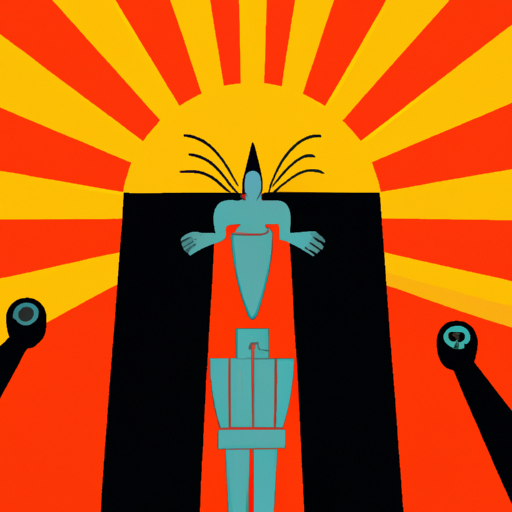
The ultimate question of who was the strongest ruler in history is one that can never be truly answered. There are many aspects to consider when assessing a leader’s strength, such as military might, political prowess, and economic aptitude. Furthermore, opinions on who the mightiest ruler may differ based on cultural and temporal contexts. In short, it is an enigma that may never be solved.
.
Some questions with answers
Q1: Who was the strongest ruler in history?
A1: It is difficult to determine who was the strongest ruler in history as it depends on many factors such as their military, economic, and political power.
Q2: What made them powerful?
A2: The strength of a ruler can be determined by their ability to maintain control over their kingdom or empire through a combination of military, economic, and political power.
Q3: Who are some of the most famous rulers in history?
A3: Some of the most famous rulers in history include Julius Caesar, Alexander the Great, Genghis Khan, Queen Elizabeth I, and Augustus Caesar.
Q4: How did these rulers gain power?
A4: These rulers gained power through a combination of military conquest, alliances with other leaders or nations, and through their own charisma and leadership skills.
Q5: Are there any modern-day rulers that could be considered strong?
A5: Yes, there are several modern-day rulers who could be considered strong depending on how one defines strength. Examples include Vladimir Putin of Russia and Xi Jinping of China.
